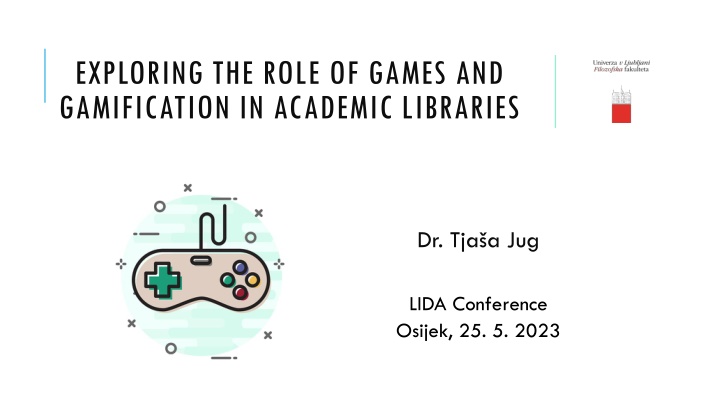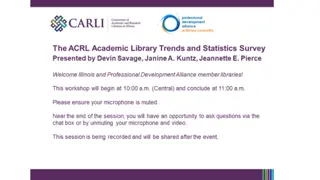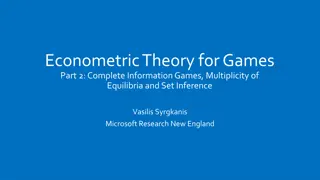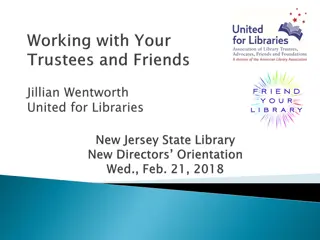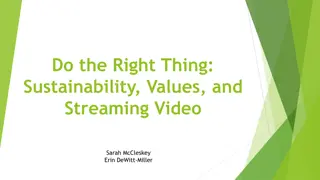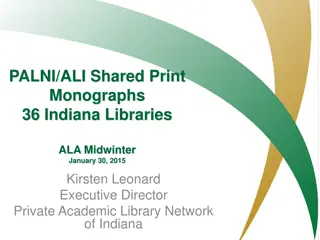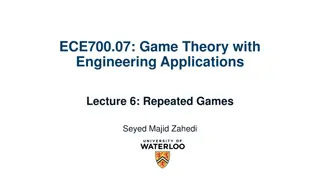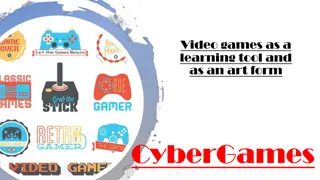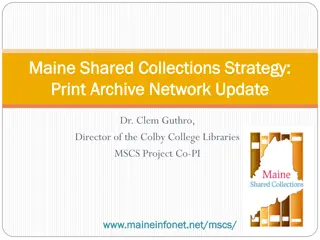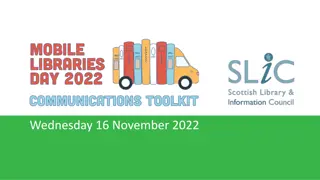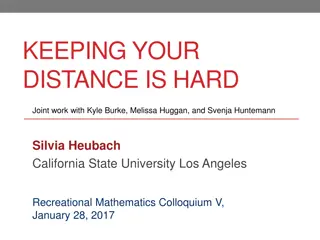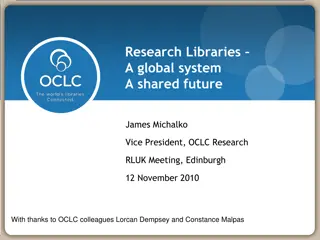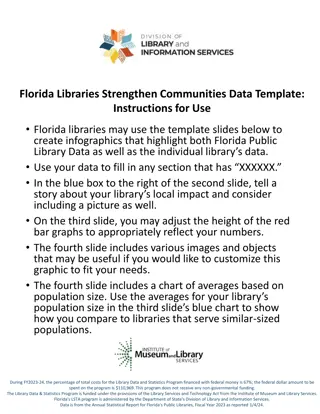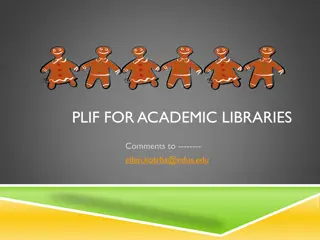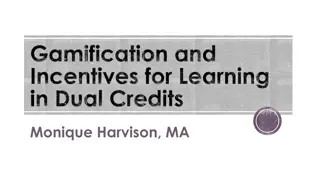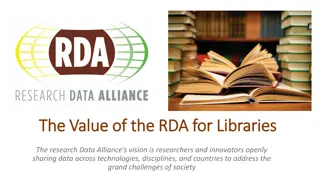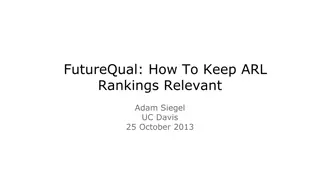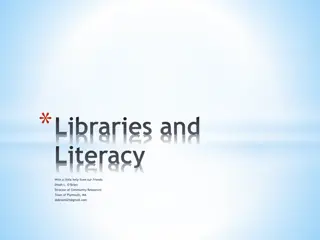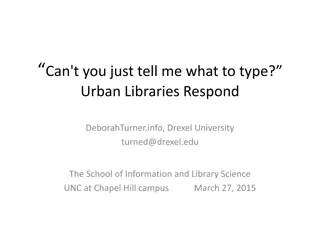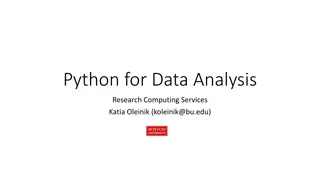The Impact of Games and Gamification in Academic Libraries
Explore the role of games and gamification in academic libraries through images and descriptions of their potential benefits, implementation challenges, and research findings. Discover how incorporating game elements can improve motivation, learning outcomes, and library services. Uncover insights from LIS educators on attitudes, goals, and suitable activities for integrating games into courses and library services.
Download Presentation

Please find below an Image/Link to download the presentation.
The content on the website is provided AS IS for your information and personal use only. It may not be sold, licensed, or shared on other websites without obtaining consent from the author.If you encounter any issues during the download, it is possible that the publisher has removed the file from their server.
You are allowed to download the files provided on this website for personal or commercial use, subject to the condition that they are used lawfully. All files are the property of their respective owners.
The content on the website is provided AS IS for your information and personal use only. It may not be sold, licensed, or shared on other websites without obtaining consent from the author.
E N D
Presentation Transcript
EXPLORING THE ROLE OF GAMES AND GAMIFICATION IN ACADEMIC LIBRARIES Dr. Tja a Jug LIDA Conference Osijek, 25. 5. 2023
Start Finish
GAMES Abstract context Feedback Challenge Rules Interaction Serious and educational games: Skill building, learning, practicing, applying knowledge in different contexts
GAMIFICATION Game elements Real world problems Motivation Non-game contexts Continuous activity Effective tool in many fields: Education, science, personal development, healthcare, marketing, workplace
GAMES AND GAMIFICATION IN LIBRARIES Appropriate for all types of libraries. LIBRARY INTRODUCTION AND ORIENTATION MOTIVATION FOR READING AND CIRCULATION EDUCATION AND INFORMATION LITERACY COURSES Rarely included in the LIS curricula.
RESEARCH QUESTIONS RQ1 RQ2 RQ3 Attitudes of LIS educators towards the inclusion of games and gamification in their courses. Goals that could be achieved by introducing games and gamification into library services. Activities that would be most suitable for academic library services.
METHODOLOGY January 2021 10 course holders Thematic analysis Interviews Zoom/E-mail LIS
RESULTS - INCLUSION OF GAMES AND GAMIFICATION IN THE COURSES Slovenian LIS educators rarely include these topics in their courses. Digital libraries, marketing, textbook publishing, designing e-learning materials. They recognize the connection to their courses. Motivation, learning, developing reading habits, patron types, cataloguing. Some of them have used gamified approaches in the past. Competitions, leaderboards, points, quizzes, role-playing, awards. Lack of knowledge and skills prevents them to use diverse techniques.
RESULTS - INCLUSION OF GAMES AND GAMIFICATION IN THE LIBRARY Games and gamification would be a positive addition to the library services. Improve knowledge Activate Motivate Circulation Collection Work Information Resources New members Services Independent research Visits
RESULTS - SUITABILITY OF GAME ELEMENTS AND GAMIFICATION APPROACHES General or specific games? First-year students Upper-year students General games Specific games Escape rooms, quizzes, board games, role-playing games
RESULTS - POTENTIAL BARRIERS Concerns related to suitability for the academic environment. Project should be carefully designed. Activity should be aligned with/or learning objectives. Technically and organizationally very challenging and time-consuming. Insufficient knowledge about games, possibilities, tools, procedures, audience.
CONCLUSION Games and gamification are well suited to library setting. They are still rarely used and surrounded by stereotypes and scepticism. These topics are rarely included in the (Slovenian) LIS curricula. When informed, LIS educators and librarians are willing to change their practices. Escape room Badges Lectures Games Kahoot!
https://content.iospress.com/articles/education-for-information/efi230038https://content.iospress.com/articles/education-for-information/efi230038
Game over Thank you for playing! + = E-mail: Tjasa.Jug@ff.uni-lj.si
